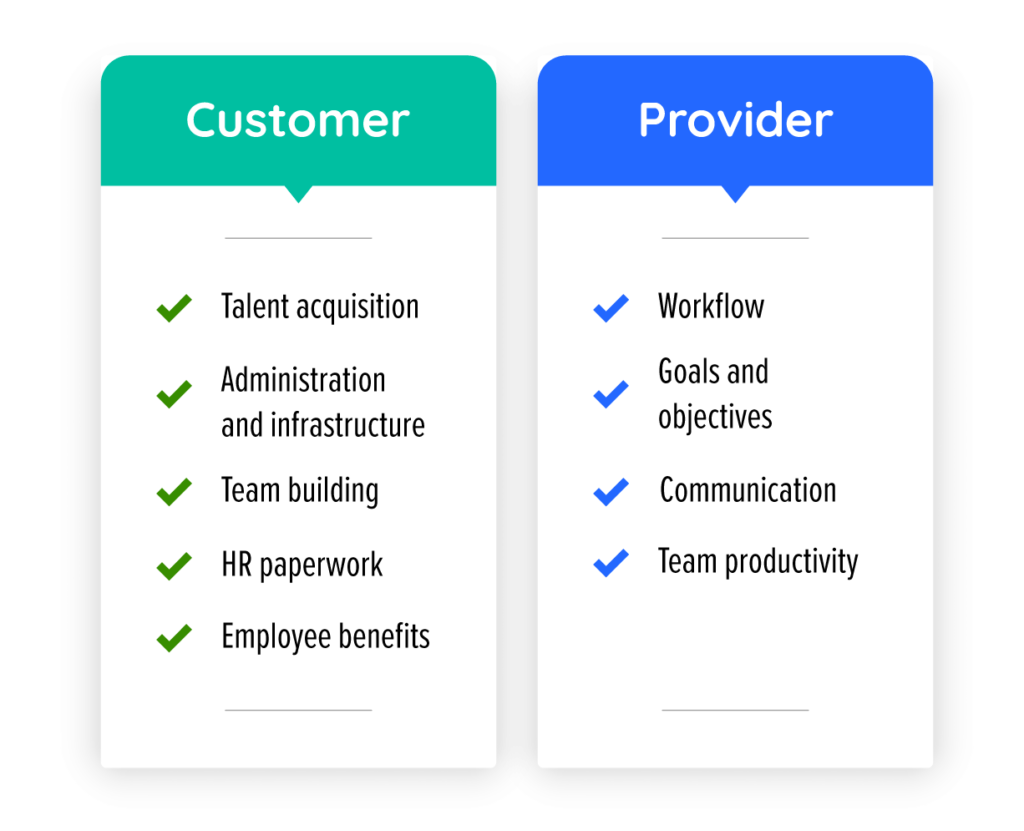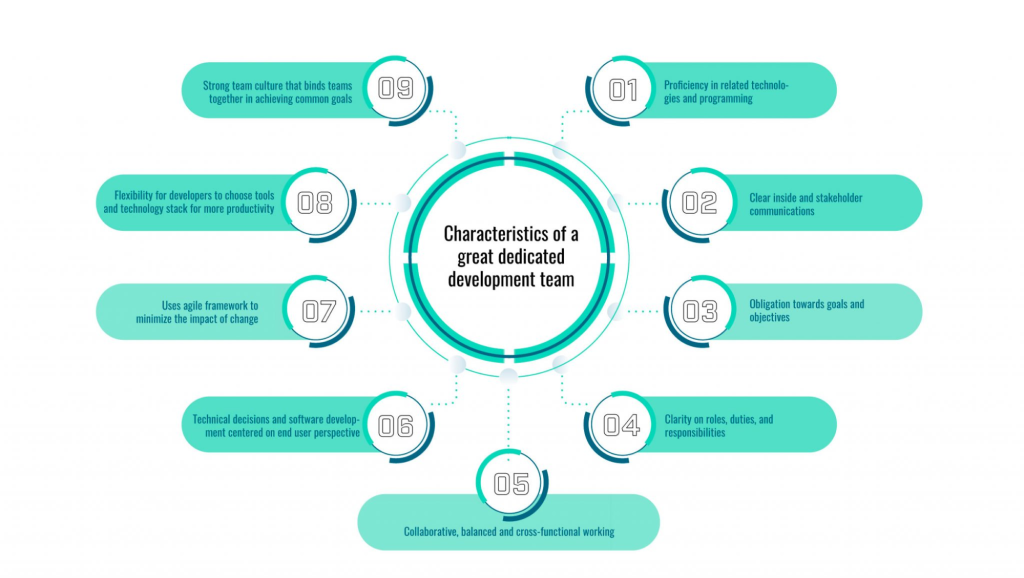This year, the global productivity of software development teams surged by more than 200 percent. Outsourced project work brought in by teams from all around the world has resulted in productivity increases of over 350 percent in some circumstances.
In the IT business, the term “outsourcing” is well-known. In reality, the IT industry leads the way in outsourcing, accounting for more than half of the market. According to experts, the IT outsourcing business will increase at a 5% annual rate in the coming years, reaching a market value of almost $500 billion.
What does this imply for your company? If your company is having a talent shortage, you should reconsider how you find people in the market. What are some easily available alternatives that you can use to your advantage and help your organization reach its objectives without breaking the bank?
It’s worth experimenting with a sensible outsourcing approach like a dedicated software development team. It allows you to recruit specialists from all over the world, and with specialized development teams, you may hire cross-functional professionals to help you achieve your objectives even faster.
You can assemble a well-rounded team of remote talent and cooperate on software development projects by forming specialized teams. While it may appear straightforward, getting this configuration up and running like a well-oiled machine requires much time and forethought!
If you haven’t given it any thought, here’s what we have to get you started on navigating the arrangement, as well as your step-by-step approach to establishing a successful dedicated development team for your company.
When forming a dedicated development team, there are a few things to keep in mind.
You employ a group of software developers from a vendor who is overseen by the outsourcing firm. But how can you know if the hired specialized development team is up to the task?
The customer and the provider share the following scope when hiring a dedicated development team:

Now that each party’s duties have been established, the process will go forward with the definition of requirements, candidate evaluation, team deployment, and feedback on team output.
There are various other factors that can assist you in determining the level of expertise of your dedicated development team. The following are some of the features that great dedicated teams might have:

- Programming and knowledge of relevant technologies are required.
- Internal and stakeholder communication is crystal clear.
- Goals and objectives must be met as a matter of course.
- Roles, obligations, and responsibilities are all defined clearly.
- Working in a collaborative, balanced, and cross-functional manner.
- Technical decisions and software development were made with the end user in mind.
- To reduce the impact of change, it employs an agile structure.
- For increased efficiency, developers should have the freedom to choose their tools and technological stack.
- Strong team culture that unites teams in pursuit of common goals.
A dedicated development team’s roles and responsibilities
Software development projects have their own particular characteristics, and the team structure will change depending on the project’s complexity. The dedicated development team‘s tasks and responsibilities will vary depending on the project. The following is the most widely accepted structure:
Project Manager
In a devoted team, the project manager is the most important function. The project manager is responsible for ensuring that the team’s requirements and performance are met. Leading, project planning, recruitment, fulfilling deadlines, task management, building an appropriate communication channel, and ensuring that the project advances according to the budget allowed are among the responsibilities. One of the developers will occasionally take on the job of project manager.
Functional/Operational Manager
The project manager reports to the functional/operational manager, who supervises activities such as project development, reviews team and individual performance, and reports to the functional/operational manager. As a result, the functional manager serves as a liaison between the project manager and the developers.
Product owner/business analyst
After appropriate customer interaction, the business analyst/product owner measures and documents the project deliverables. Their job duties will include defining the project, clarifying system requirements, and ensuring timely project completion.
Manager of Quality Assurance
The QA manager is responsible for testing the software and ensuring that it meets the system requirements and project objectives.
Team Lead
The project manager’s tasks, such as the latest tools and technology relevant to a project, will be handled by the team lead. They hold brainstorming sessions with the project manager and clients to talk about new project options.
Change Manager
When a project encounters a change or a new demand, the change manager and a group of team members will assess the situation, offer recommendations, and implement the modifications that are viable.
Client and project manager for the client
The client is the primary user of the software product and will provide project requirements, feedback, and deadlines. The client will be kept informed throughout the process, and the software development team considers the client to be a critical component.
The client’s project manager provides critical feedback to the team’s project manager based on their organization’s goals and objectives. This will aid in the project’s direction in order to satisfy the client’s goals.
Test Engineer
The test engineer runs tests based on test scripts to guarantee that the product is free of bugs. The evaluation process’s subsequent outputs are reached in this manner.
Administrator of the database
A database administrator’s major role is database creation and management. To build and develop an efficient database, he or she should be well-informed about the project needs.
Developers
Developers, often known as coders, build code for software projects and guarantee that deliverables arrive on schedule.
System architect
By taking into account the software needs of the client, the system architect provides design solutions for complicated software architecture.
Designer
The designer is in charge of making the software product seem the way the client wants it to. The designer should ensure that the product has flawless usability through unique designs and the use of standardized tools and procedures.
User
The software development process includes end users as well. Their feedback is valuable since it aids in the future improvement of product performance.
Choosing a dedicated software development team
What should you keep in mind when looking for a specialized software team?
Here’s your to-do list:
- Is the model cost-effective and transparent in its pricing?
- Do you have access to a vast pool of candidates?
- Is the staff made up of certified professionals?
- Are you in charge of the project’s technical aspects?
- Will the project be deployed quickly and delivered on time?
- Is there any evidence that the specialized team providers have prior experience in the field?
- Is this going to be a cooperative team effort?
- Are you able to pick and choose which experts you need to work on your project?
- Will you be in charge of the entire project?
- If the service provider gives you a positive response to all of the above inquiries, you’re in excellent hands.
Are you still looking for a technology consultant for your business?